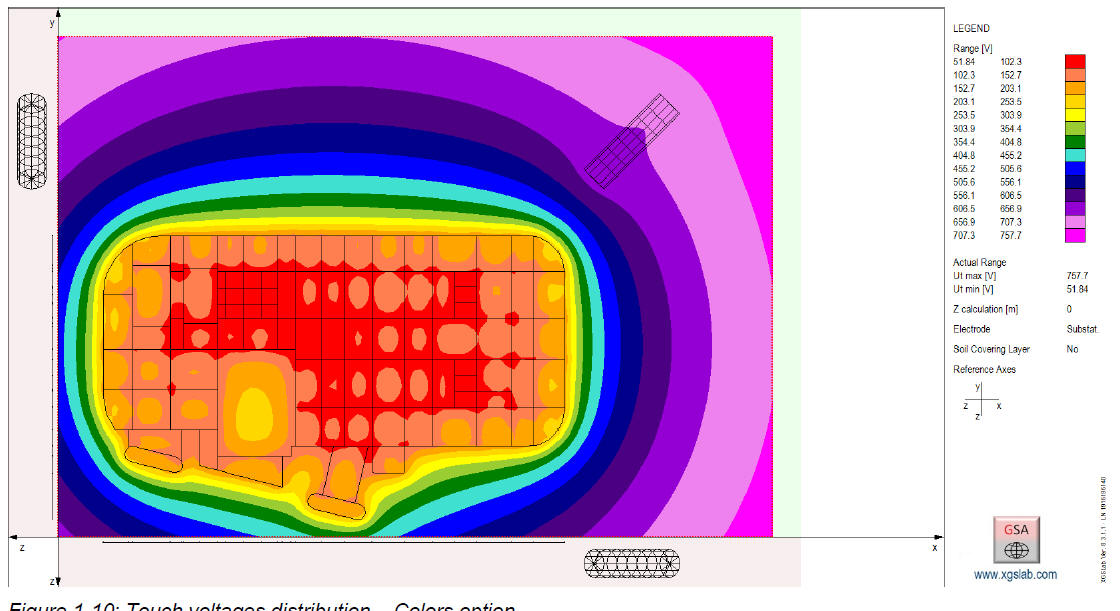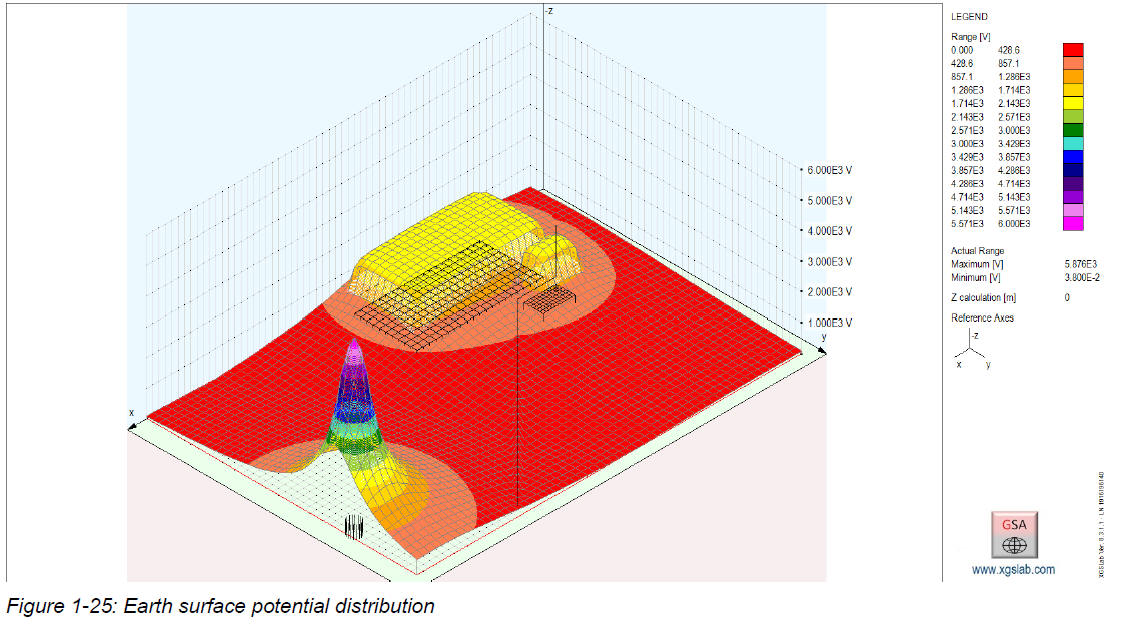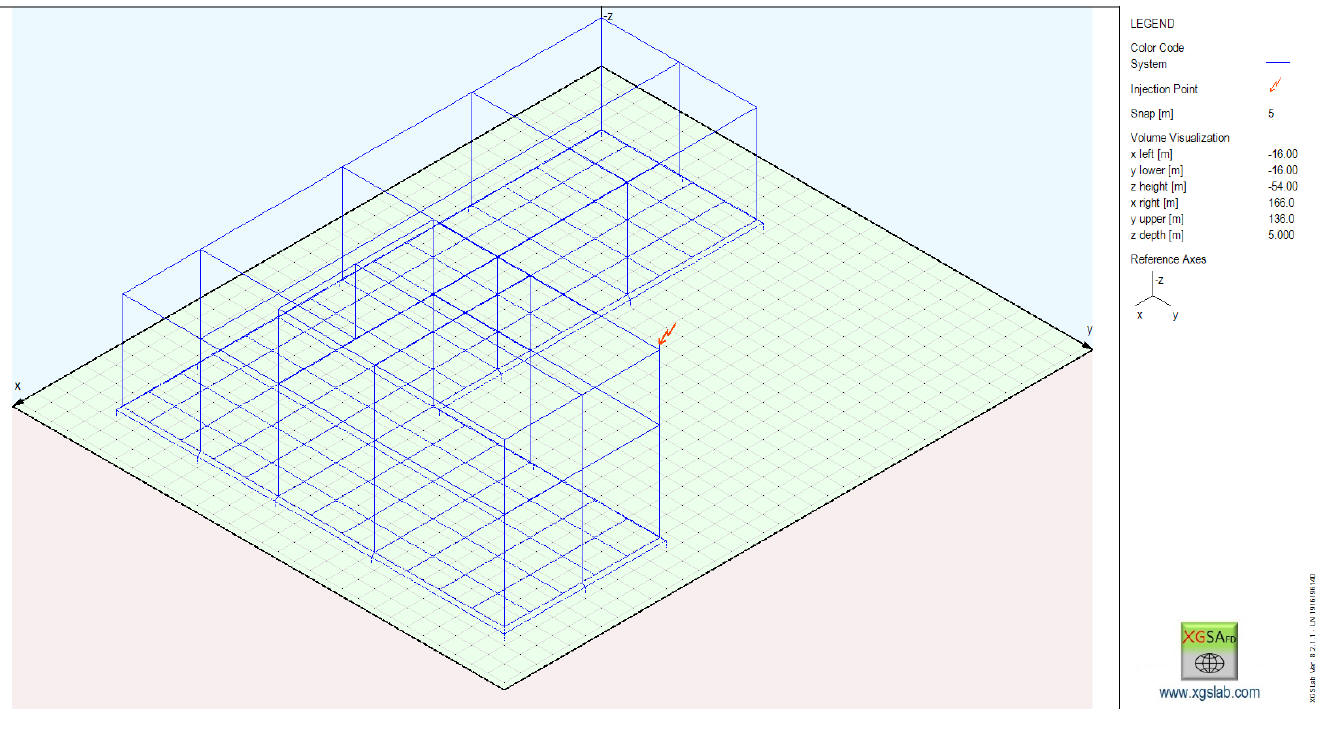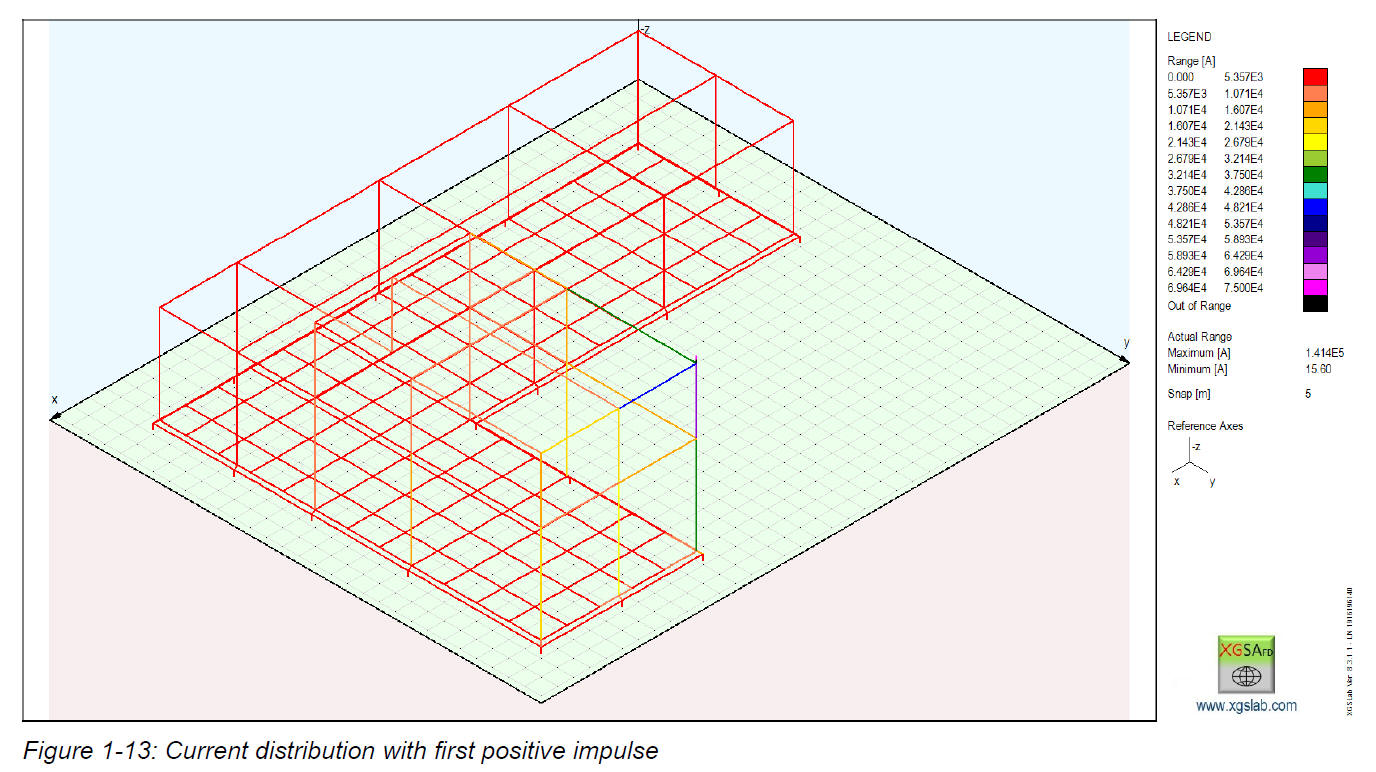Grounding System Design and
Studies
Safe operation of
power systems relies upon proper grounding
of the system and equipment. While standard
grounding electrodes such as ground rod
arrays may satisfy national electrical
codes, these types of electrodes will not
provide adequate shock protection in many
environments. In additon, without a complete
comprehensive analysis of grounding systems,
unexplained equipment damage can ocurr.
Any industrial or
large commercial complex in which the owner
has power substations that they own and
operate, safe operation of these substations
requires grounding grid designs that comply
with IEEE Std. 80. Quadrelec Engineering has
the experience to design and evaluate
existing grounding systems to ensure safety
for those operating in and around these
substations.
System modeling and
design using state of the art software such
as
XGSLab.
This powerful software has the ability to model
complex structures in or around grounding
systems using complex algorithms
encompassing both electric and
electromagnetic fields from conductors.
There is almost unlimited capabilities of
this software in analyzing systems even in
the high frequency domains.
Safet touch and step
voltages around equipment can be displayed
graphically relative to the physical model
along with voltages along the grounding
conductors. Even above ground conductors
impacted by such fast transients as
lightning strokes can be modeled to
determine arcing and side flash distances.
Quadrelec has
the in-house test equipment and ability to
gather all soil resistivity data at a site
without involving other subcontractors.

The plot above shows
the touch voltages around a substation
ground grid including the effect of a buried
tank in the upper right which distorts the
current field in the ground.

The above plot shows
the voltages along the surface for a grid
with two buried structures nearby.

The plot above is
modeling a lightning strike to a building at
the location of the red stroke symbol. The
plot below is showing the voltages along the
structure as a result of the lightning
strike.

|



